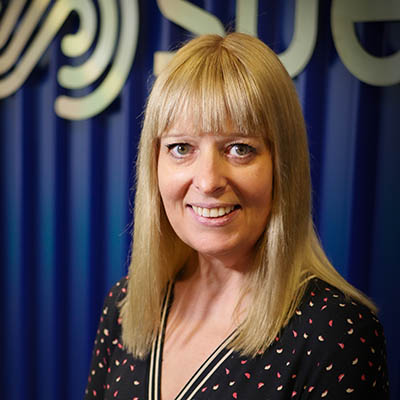Celebrating women - and progression towards the norm

Recently in a hotel in Birmingham there was an important gathering and a step towards normality.
The annual conference of our Women’s Network returned to an in-person event as it used to be. With reasonable precautions, people came together in the same room to listen to inspiring presentations, debate and discuss, applaud and celebrate, meet and mingle. Just as we did before COVID turned our world and ways of working and living upside down.
But wonderful though it is to get together like that again, the norm – or normality – I have in mind is something else, and it’s some way off yet in our industry and other sectors. When we see women filling their fair share of roles as engineers, senior managers and front-line workers and no-one gives it a second thought, that will be a mark of progress and positive achievement in the world of work – and what should be the norm.
It’s true that the waste and resources industry is making progress in this regard. We’re attracting more female applicants for jobs across the board – even in operational and manual roles. I’m often stopped by women in the industry telling me that they feel a sense of change and see more women across the sector. Slowly, we’re moving away from being a heavily male-dominated industry.
The SUEZ group has targets designed to raise the number of women managers in all its subsidiaries. More widely, the target for women to hold 33% of board positions at the UK’s top 350 companies – set by the government-backed Hampton-Alexander review – was achieved by the end of 2020. The number of female directors (at FTSE 100 and FTSE 250 firms) rose by 50% in five years. But according to the latest estimate, at present progress, it will take until 2036 for women to reach parity in top roles. The same report found that COVID had set the cause back by several years.
Of course, our ideal normal of gender parity requires profound societal and cultural change, and there’s a long way to go. The UK doesn’t appear among the top ten countries listed in the World Economic Forum’s 2021 Gender Gap Report. (Iceland has been consistently ranked the most gender-equal country; the UK is 23rd).
Globally, the gradual narrowing of the gender gap has been reversed, largely due to the uneven impacts of the pandemic. Which is why efforts to raise the educational and career ambitions of girls and young women are more important than ever. The International Day of the Girl 2021 was marked recently. The Inspiring Girls International campaign – using the hashtag #ThisLittleGirlIsMe – is spreading youthful images across social media of women who’ve gone on to forge careers so as to highlight the potential of young girls today and provide female role models for them.
I’ve always believed that the best role models are regular women – mothers, friends, work colleagues – who live as their authentic selves, standing up for what they believe, and always aiming to be their best selves in their daily work and private life. This view was confirmed when I asked the members of our Women’s Network to talk about their role models. The vast majority spoke of women close to them. No doubt, they will be spoken of again – alongside some more famous figureheads – by the 100 or so delegates at our conference this month.
Our last conference focused on the importance of networking, both face-to-face and – appropriately, given what was to follow – online. This year’s theme was ‘Be your best self’, and two external, inspirational businesswomen, Sarah Hughes and Fiona Duckers supported us in the delivery of it.
The programme was designed to be supportive and energising. It was about celebrating the women in our business, but also sharing strategies to build self-confidence and a motivational mindset. Importantly, it was about identifying and committing to some actions to help them move forward in their lives in whichever way they felt would help them be their best self.
Our Women’s Network gives colleagues the opportunity to meet, learn from each other, and provide mutual support. The Network also provides training and tips on topics such as imposter syndrome and constructive ways of calling out any unacceptable behaviour.
Informal groups like this have a useful role to play on the journey to gender parity, alongside enlightened corporate policies on equality of opportunities and pay, unconscious bias training, maternity and paternity leave, and hybrid working.
Our Women’s Network can also act as a sounding board and inform our policies. One area of interest is what difference the pandemic’s lockdowns and working from home has made to women’s working and domestic lives.
Home schooling of children only added to the pressure on many working women. Others welcomed the freedom from the daily commute. As I have written about previously, we need to be mindful moving forward that new ways of working aren’t of detriment to the longer-term careers of women. It will be important to find ways and means of ensuring that informal social networking within organisations is inclusive of everyone, whether working in the office or at home.
As HR leaders and managers, we need to keep moving forward toward gender equality and not just out of the moral imperative of fairness but also for the sake of sustainable business. Gender balance is an essential part of the diversity dividend that businesses reap when they employ the best people from all backgrounds and cultures.
Research shows that women in positions of influence make a difference. They can shift the strategic mind-set of businesses to long-term strategy and value creation and towards greater innovation.
So, as well as celebrating the contribution of our SUEZ women at our conference, we will continue working and looking forward to the day when realising the potential of all people, regardless of gender, is the norm.